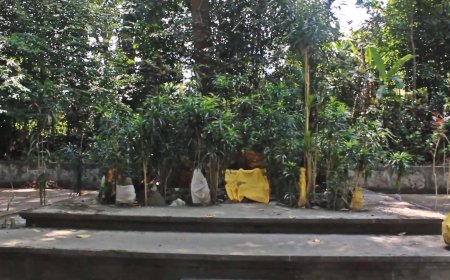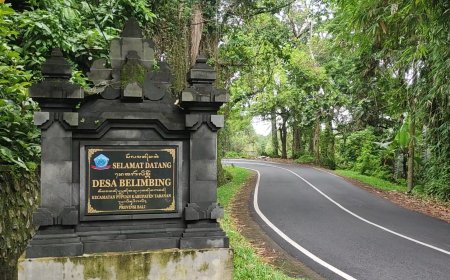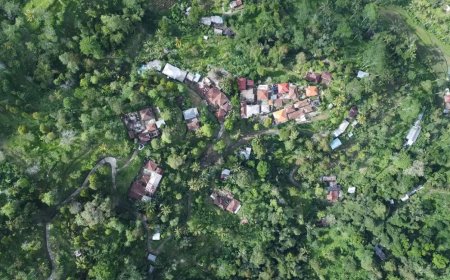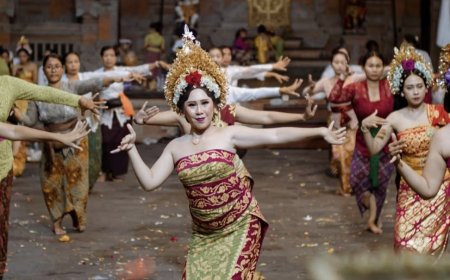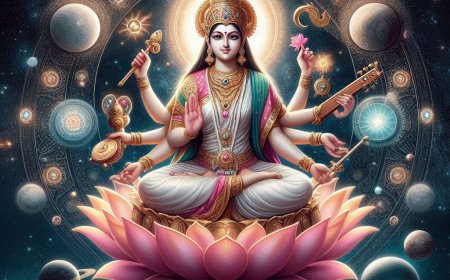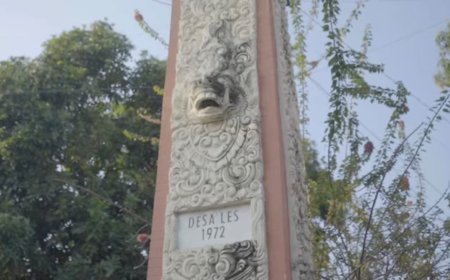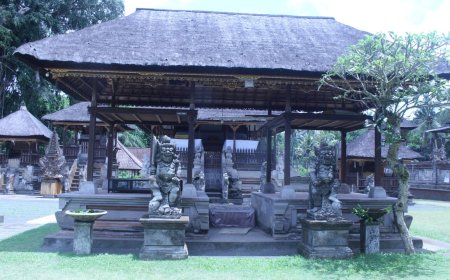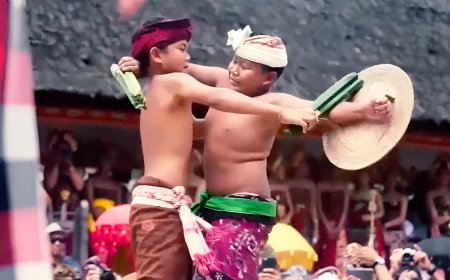Exploring the Ngusaba Bukakak Tradition: A Sacred Ceremony Safeguarding the Balance of Nature and Life in North Bali
Ngusaba Bukakak is a sacred ceremony in North Bali aimed at maintaining the balance between nature and life. Conducted as a form of gratitude to Sang Hyang Widhi Wasa, this tradition involves offerings of decorated roasted pigs, processions of villagers, and rituals at temples. Despite modernization, Ngusaba Bukakak is preserved as a symbol of harmonization between humans and nature, emphasizing the importance of maintaining ecological balance. This tradition is carried out in several villages in Bali, such as Sudaji Village, Giri Emas Village, and Sangsit Village.
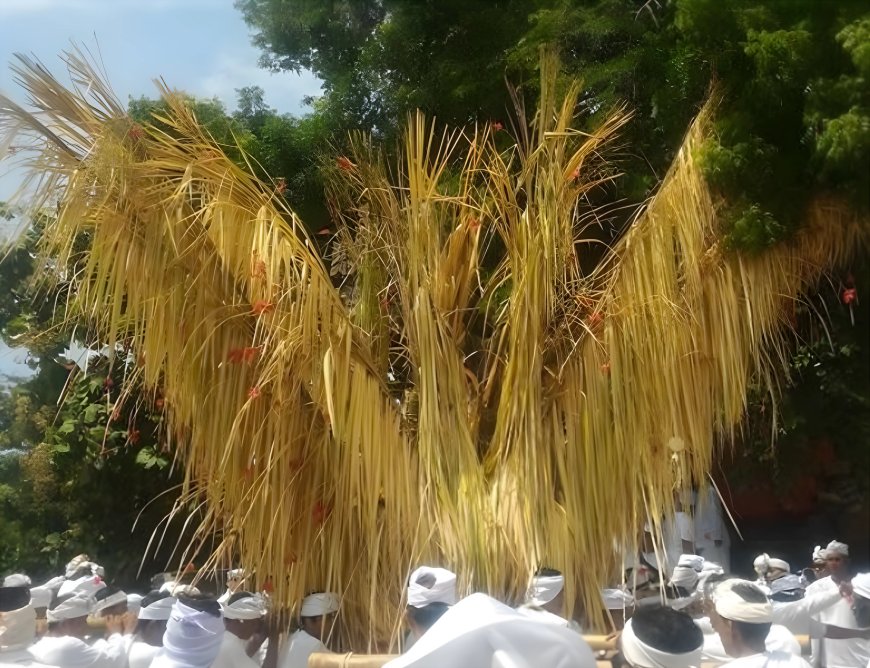
Bali is renowned for its rich traditions and culture that stand the test of time. Among the many preserved traditions in Bali, one of them is Ngusaba Bukakak, a sacred ceremony held in North Bali. This ceremony is not just a cultural ritual but a form of respect for the universe and a means to maintain the balance of life for the Balinese people.
Ngusaba Bukakak derives from the word "Ngusaba," meaning ceremony or offering, and "Bukakak," referring to an offering in the form of a decorated roasted pig adorned with coconut leaf decorations and various religious symbols. This ceremony is traditionally carried out by the people of North Bali, particularly in the Pekraman Sangsit Village, Buleleng Regency.
Ngusaba Bukakak aims to maintain balance between nature, humans, and the spiritual world. In Balinese Hindu philosophy, the balance of nature is the main foundation of life, and if disturbed, it can lead to both physical and spiritual disasters. Therefore, through this ceremony, the community seeks blessings and protection from the gods to keep the balance intact.
The Ngusaba Bukakak ceremony is held once every two years, precisely on Rahina Purnama Sasih Kedasa. The ceremony is conducted as an expression of gratitude to Sang Hyang Widhi Wasa for the blessings given to nature, particularly in the agricultural sector. The procession of the ceremony involves various stages, filled with deep meaning and symbolism.
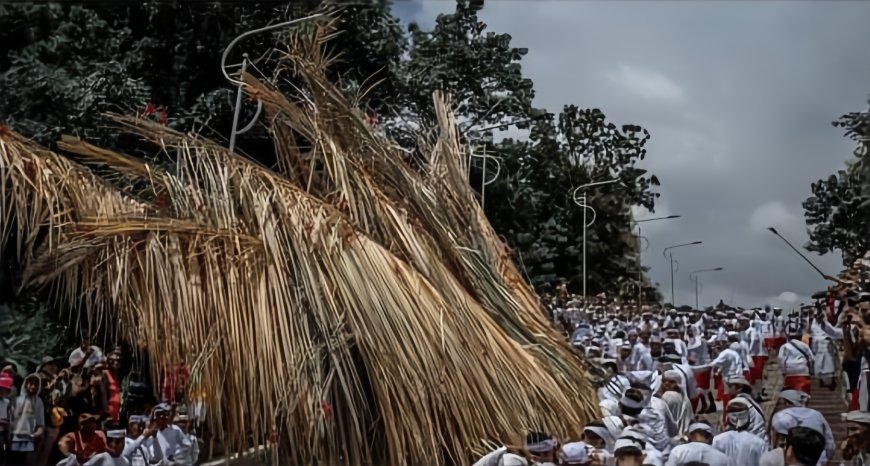
Bukakak Procession on the Road (Photo Source : Personal Collection)
The first series of events for Ngusaba Bukakak begins a few days before the peak ceremony, where the community works together to create "gebogan" or offerings made from fruits, flowers, and other agricultural produce. The roasted pig used in the ceremony is specially prepared, decorated with coconut leaves, and placed in the offering area.
On the day of the ceremony, a procession of villagers parades the roasted pig and agricultural produce to the temple or ceremonial site. This procession is accompanied by the sound of traditional gamelan music and sacred dances, creating a solemn and spiritually charged atmosphere. Along the way, the local priests and community members offer prayers for blessings and protection for the universe from various disasters.
Upon arriving at the temple, the priests perform a series of worship rituals. The offering of the roasted pig is made to Dewa Baruna, the god representing the power of water and the sea. This offering is believed to symbolize respect for the forces of nature that sustain life, both on land and at sea.
After the main offering, the ceremony concludes with "mebanten" or smaller worship rituals as a final homage to the ancestors and the guardian deities of nature. This offering also reflects the hope that the continued existence of the Balinese community will always be blessed.
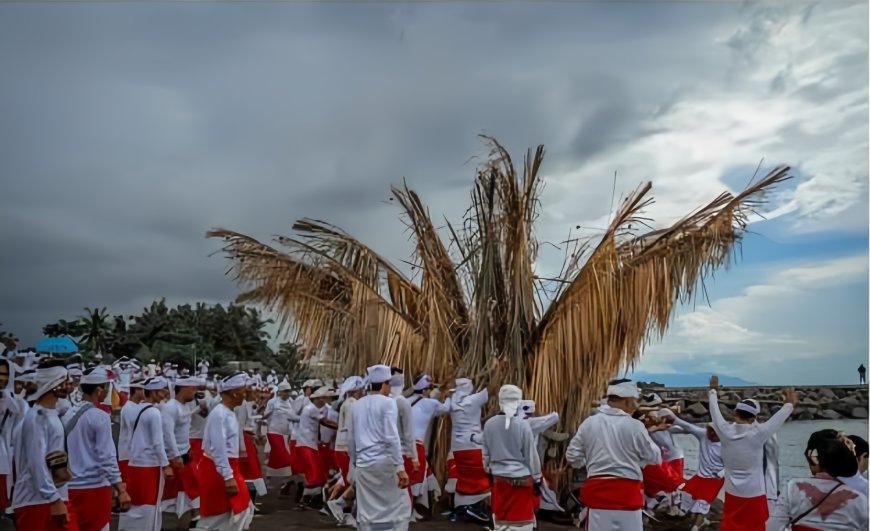
Bukakak Procession on the Beach (Photo Source : Personal Collection)
Amidst the tides of modernization, Ngusaba Bukakak remains a vibrant tradition practiced by the people of North Bali. This ceremony serves as a symbol of the resilience of tradition in the face of changing times. The local government and various cultural communities are also actively involved in preserving this ceremony, recognizing the noble values it embodies.
Ngusaba Bukakak is not just a religious ritual but also a moral message that is highly relevant to today's environmental conditions. With the increasing realities of climate change and environmental degradation, traditions like Ngusaba Bukakak remind us of the importance of maintaining balance between nature and life. This local wisdom reminds us that humans cannot stand alone without harmony with nature.
Ngusaba Bukakak is one of the many Balinese traditions that demonstrate the significance of a harmonious relationship between humans and nature. Through this ceremony, the people of North Bali continue to uphold spiritual and ecological balance, maintaining harmony between the physical and spiritual worlds. This tradition is not only a legacy of the ancestors but also a lesson for future generations to care for the environment and life with full awareness and responsibility.
